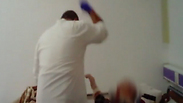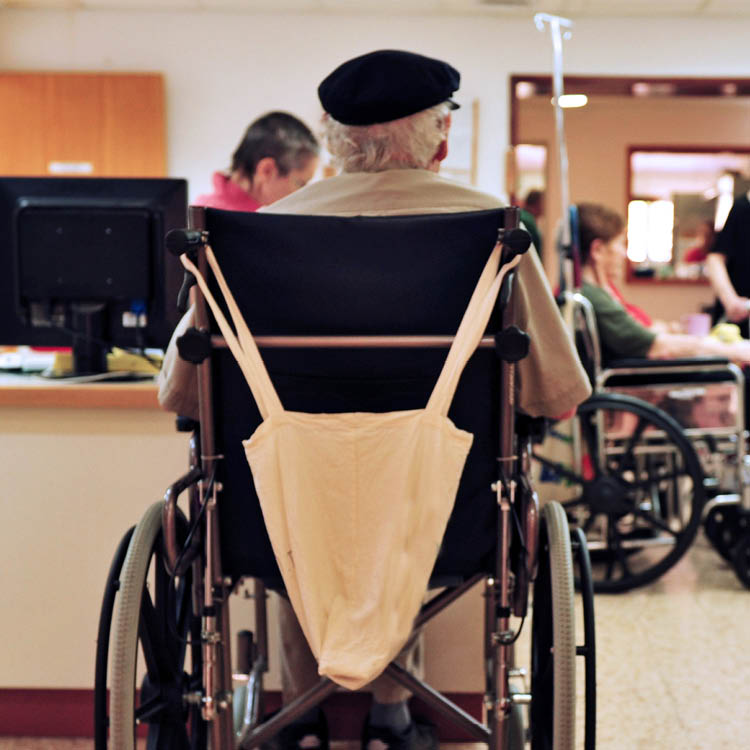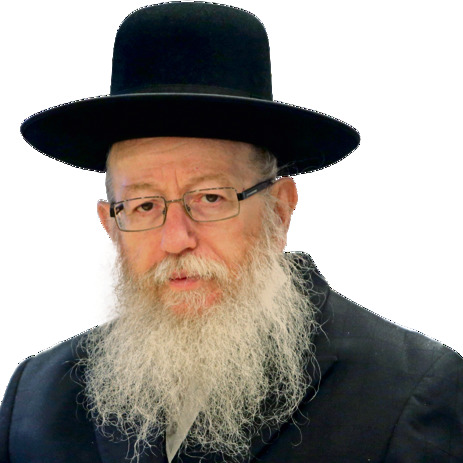
Litzman contacted Prime Minister Benjamin Netanyahu and Finance Minister Moshe Kahlon on Monday in a request to step in, in what he calls "a national crisis." The solution he suggested has both immediate and long-term facets.
For the immediate phase, Litzman suggested installing cameras in the nursing departments, adding standards, reinforcing the workforce by 2,400 foreign workers, and adding 95 supervisors, all of which requires immediate funding estimated at around a quarter of a billion shekels.
However, the health minister realizes that cameras and supervisors are not enough to delve into the core of the system and mend its deep-seated failures, which is why he insisted the state should budget an overall reform.
In Israel, there are currently 21,000 geriatric beds in 800 departments spread out over 300 nursing home facilities across the country. This population is currently treated by approximately 8,800 nursing staff—too small a number for a developed western country.
The Israeli nursing system falls under the jurisdiction of various bodies—from the community clinics, through the health and welfare ministries and all the way to social security.
The proposed reform includes incentive packages to the community clinics for them to make house calls and visit elderly patients, and by doing so, perhaps prevent their deterioration.
The number of nursing care hours will be nearly doubled—currently, home nursing care recipients get 18 hours at the most. According to the new reform, the number of hours will be doubled and reach 33 hours per week.
Moreover, an elderly individual who is hospitalized in a nursing facility needs to produce title documents of his properties as well as his children's salary slips, but that requirement will be dropped.
In order to fund the reform, Litzman suggested a 0.6 percent raise in health taxes, according to income. The Finance Ministry is against this and one of the proposed solutions is that in the first two years, the state would finance the reform and if it proves successful, the tax will be raised.
Minister of Welfare Haim Katz said to Yedioth Ahronoth that he "would not hesitate to shut down nursing homes that break the law. What is happening right now is atrocious."
Katz addressed the recently exposed reports on the abuse of elderly individuals saying that "there can't be a situation in which a caregiver loses his patience and acts inappropriately."
Katz also said that most of the supervision will be done in the mentally frail wards. "The state should be the one supervising since it is the one paying for it, and it should take care of its helpless."
Katz intends to pass a bill amendment in the next few days, which would allow discharged soldiers to work in the nursing field as a preferred job.
On the backdrop of the events in the Haifa nursing home, the owner of the facility, Avi Ruderman, will step down from his position as CEO and the nursing home will start looking for an external replacement.
Health Minister Litzman and the Ministry of Health's Director General, Moshe Bar Siman Tov, toured the Haifa nursing home on Monday, met with patients, family and staff members.
The conclusions of the independent committee appointed to head the investigation into the events will be submitted to the Ministry of Health.


















